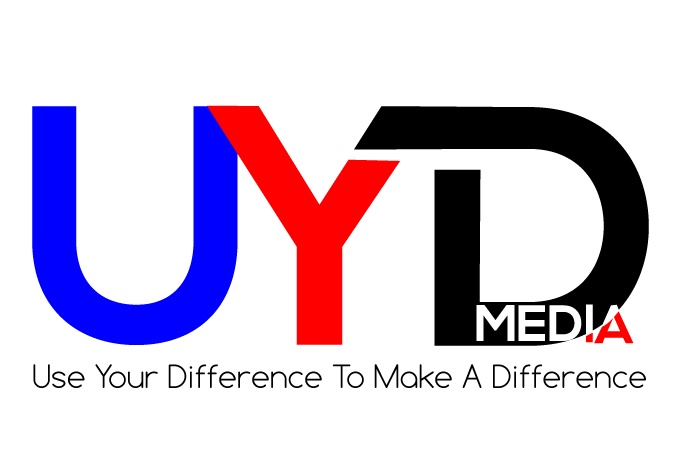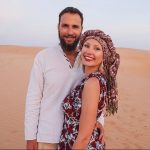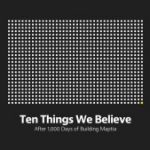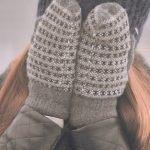Can you tell us about your background?
Let me start out by saying that I really appreciate what you are doing for TCKs and the opportunity to be featured in Use Your Difference Magazine, so thank you.
I was born in the Netherlands, but also grew up in Switzerland and Luxembourg. After attending mostly international schools, I completed my university degrees in the States (B.A) and Europe (M.A.). I then dipped my toes in a few ill-fitting careers and enjoyed being a ski instructor for a few seasons. At this point I met my husband. We skied in the winters and backpacked in the summers. When we realized we could combine our passions for teaching and traveling through working at international schools, we went back to school to do a Master’s in Education. Since then, we have taught at international schools in Egypt, Burma, Bolivia, and Aruba. Currently, I teach second grade at an international school in Switzerland and we are raising our own two TCKs.
How do you usually identify yourself?
At this point, I mostly identify myself as an Adult Third Culture Kid. Although I feel very strong ties to both the Netherlands and Switzerland, I have spent most of my adult life looking for home and a true sense of belonging. I feel a little bit of belonging with each of the cultures and countries that I lived in, so it’s become impossible to pinpoint it down to one cultural identity. It was only when I learned about Third Culture Kids, that I finally felt I could truly identify with others who share this kind of history.
So you’ve travelled, lived and worked in several countries. Can you tell us what you’ve learned from your time overseas?
The more you travel, the more you want to keep traveling. Traveling opens your eyes and heart to the world and, if you let it, it allows you to gain a deep understanding of cultures and people. When I started backpacking I thought I could happily start ticking things off my ‘to visit’ list. I quickly learned I never ticked anything off (most places would be worth visiting again) but only added more places to my list.
Nevertheless, while traveling, I also felt a simultaneous desire to cultivate a strong sense of home. While following my heart and looking for home, traveling has taught me more about me and what home means to me than staying in one place ever has. Traveling asks many questions.
This does not mean I do not value the time spent in one place. Staying put has taught me that it is almost easier to keep traveling. Somehow staying put is harder, requires more commitment, and may ask even tougher questions. Especially when you have already traveled.
For someone looking to get into a career like yours, what would you say to him/her?
If you want to teach internationally, I think it is important to know that there are many really bad schools out there and some really good ones. Getting to know both is part of the experience, but don’t let a bad one discourage you from finding the good ones! It a very rewarding experience to be able to integrate into a culture through education.
In terms of writing, the best advice I ever got was: “write what you know about”. Then write about it. Keep writing until you really have an idea or story that you feel passionate about. Then pitch these to the experts because they may help you more than you could even hope for. And even when there are (many) times when you want to give up, don’t!
How do you find the balance between work/travel?
It used to be that my work meant that I could travel the rest of the year (ski instructing). Then it turned into my work allowing me to travel a lot during vacation (teaching). At the moment it is about finding a balance between being a mother and work. Personally, I feel like I can be a better mother because I work. I am extremely lucky that I love my job (both teaching and writing) and that my job allows me to spend lots of quality time with our two children.
Eventually, I hope that travel becomes a bigger part of our lives again. My husband and I are both still passionate about traveling and we look forward exploring new adventures and sharing them with our two daughters.
Talk to me about B at Home: Emma Moves Again and your goal with it.
As an international school teacher, I try to raise awareness about the effects of moving on children. B at Home is a fictional “memoir” about the experiences of a ten-year-old girl and her teddy bear who have to move yet again. During the different stages of another relocation, Emma’s search for home takes root. As the chapters alternate between Emma’s and her bear’s point of view, Emma is emotionally torn whereas B serves as the wiser and more experienced voice of reason.
It always seems to me that TCKs often express the challenges that come along with moving around a lot, and can often only begin to reflect on the positive influences of their nomadic existence later in life. The impact of a global lifestyle significantly affects your cultural and personal identity. By giving younger TCKs a story that they can identify with while they experience their own challenging move, I hope to help them enjoy a passage in life that can be such a rewarding journey. Although it is targeted at a younger TCK audience, I also hope to reach out to parents and educators of TCKs. Their guiding roles can be highly influential during this process which inevitably shapes a child’s identity.
Currently, I am also working on a Moving Booklet, like the one featured in B at Home. It will serve as a tool, in the form of a diary, to help children through a transition. It will be available to schools and individuals in the spring of 2015 through Summertime Publishing.
What is one way in which you connect with people when you travel?
Whenever moving somewhere, I have always enjoyed meeting the local people. Not just the locals involved in the tourism business, or the locals that invariably meet with the expat crowd, but the locals you would otherwise never truly get to know. I connect with them mostly by simply asking heaps of question to find out what their lives are like.
Transitioning here to your personal life. How have resolved that feeling of home?
My favorite home is definitely with my husband and our two daughters. Home isn’t necessarily, and cannot, just be defined by one person or a place. Home is so many things. Like one of the two main characters in my book I feel like home is “all the places that are a part of me. Home is all of my experiences combined. Home is in all the languages I speak. Home is all the people I hold so close in my heart. Home is always with me.”
Our mission statement is “use your difference to make a difference”. What is one way you use your difference to make a difference?
As an adult, I learned that growing up as a TCK made me question my identity enormously. I struggled with it, and in hindsight, perhaps unnecessarily. I think I could have used my TCK upbringing much more to my advantage if I had understood it better at an earlier age. As an adult, a mother, and a teacher, I hope to give my children and students an opportunity to understand their own TCK experience better. I hope for them to grow up feeling confident and strong about the TCK identity so that they can lead fulfilling lives.
Here at UYD Mag we like to discover new ways to embrace our identity. Can you talk about a time when you overcame a challenge by accepting who you are and embracing your global identity?
In my twenties, I somehow managed to create a my own sense of where home mostly meant, even if home is not defined by only one place. However, it was a very conscious decision to start calling a place home. I think it was the result of having a strong desire to feel consistently connected to at least one place, even if I’d leave it again.
So, there is a little Swiss mountain village where I grew up going to for many vacations as a kid. Now I can officially call it home in terms of location. I am very lucky to have a few true local friends, but ironically, the people I have connected to most in this town are TCKs or travelers. They are all people who greatly value this small town but who can also appreciate the world at large and the desire to explore what else is out there.
My husband was backpacking through this town when I first met him. We got married there and our oldest daughter was born nearby. My parents have decided to retire there, so that helps as well. By being able to call a place home, while at the same time accepting that I connect mostly with others who share a mobile lifestyle and enthusiasm for traveling, helped me appreciate the beauty of having a global identity.
What piece of advice would you give your younger self?
Stop worrying. Keep breathing. Everything always falls into place. Follow your heart. I still need to remind myself of these four things on a daily basis.
Tell us how you see multicultural individuals making an impact in the world.
I think you state it perfectly in your mission statement. “Use your difference to make a difference.” Also, I firmly believe that despite all our differences, most of us strive for the same things. By advocating mutual cultural understanding, multicultural individuals have the opportunity to help this globally shrinking, yet sadly conflict-ridden world, become a bit of a more beautiful place one step at a time.
Country with the best food:
Thailand
Country with the best music:
Ghana
Country with the friendliest people:
Myanmar/Burma
Where can we find out more about you and what are you up to?
Two ways! You can check out my website or go to my Facebook page.




